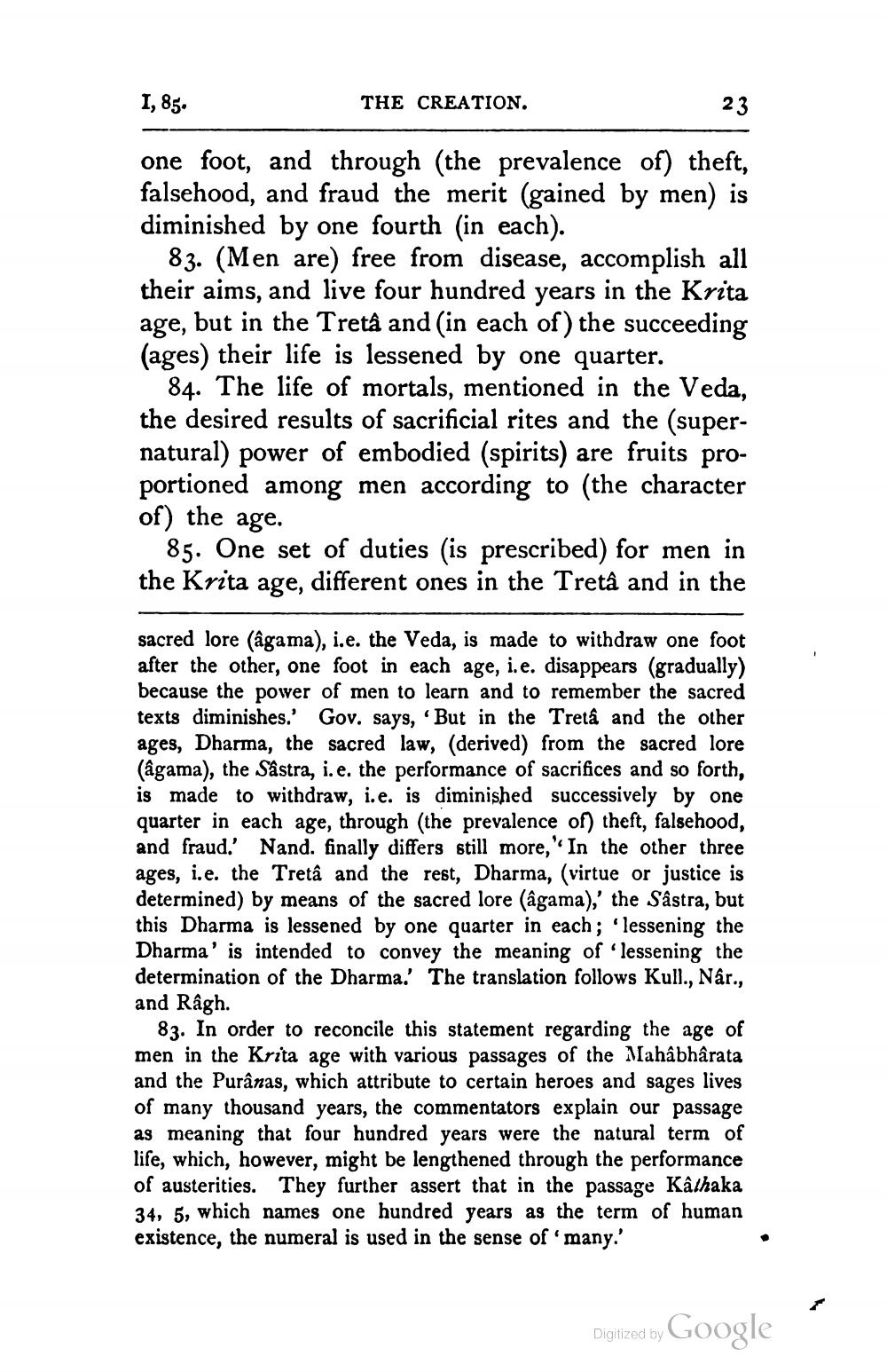________________
I, 85.
THE CREATION.
23
one foot, and through (the prevalence of) theft, falsehood, and fraud the merit (gained by men) is diminished by one fourth (in each).
83. (Men are) free from disease, accomplish all their aims, and live four hundred years in the Krita age, but in the Tretâ and (in each of) the succeeding (ages) their life is lessened by one quarter.
84. The life of mortals, mentioned in the Veda, the desired results of sacrificial rites and the (supernatural) power of embodied (spirits) are fruits proportioned among men according to (the character of) the age.
85. One set of duties (is prescribed) for men in the Krita age, different ones in the Tretâ and in the
sacred lore (âgama), i.e. the Veda, is made to withdraw one foot after the other, one foot in each age, i.e. disappears (gradually) because the power of men to learn and to remember the sacred texts diminishes.' Gov. says, 'But in the Tretâ and the other ages, Dharma, the sacred law, (derived) from the sacred lore (âgama), the Sâstra, i. e. the performance of sacrifices and so forth, is made to withdraw, i.e. is diminished successively by one quarter in each age, through (the prevalence of) theft, falsehood, and fraud.' Nand. finally differs still more," In the other three ages, i.e. the Tretâ and the rest, Dharma, (virtue or justice is determined) by means of the sacred lore (âgama),' the Sâstra, but this Dharma is lessened by one quarter in each; 'lessening the Dharma' is intended to convey the meaning of 'lessening the determination of the Dharma.' The translation follows Kull., Nâr., and Râgh.
83. In order to reconcile this statement regarding the age of men in the Krita age with various passages of the Mahâbhârata and the Purânas, which attribute to certain heroes and sages lives of many thousand years, the commentators explain our passage as meaning that four hundred years were the natural term of life, which, however, might be lengthened through the performance of austerities. They further assert that in the passage Kâ/haka 34, 5, which names one hundred years as the term of human existence, the numeral is used in the sense of 'many.'
Digitized by Google




